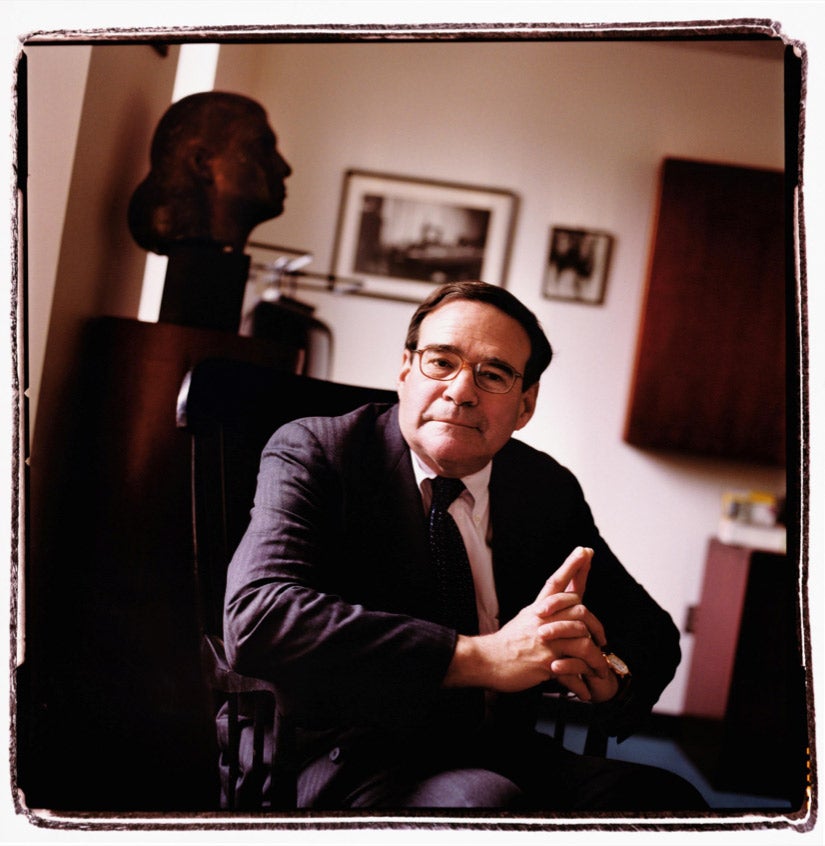Attorney Terry Lenzner ’64 has made investigation his business
Conservative publications have vilified Terry Lenzner ’64 for his investigative work on behalf of President Bill Clinton. But politics is not what drives him, he says.
“I’ve never applied a political litmus test when I’ve considered whether to accept work,” said the former federal prosecutor and Watergate lawyer. “I look instead at whether the work is interesting, and whether I think I can help the situation.”
Lenzner finds plenty to keep him intrigued as chairman of Investigative Group International, a worldwide network of former law enforcement and intelligence officers and lawyers he founded in 1984 as an adjunct to his own law firm. With headquarters in Washington, D.C., IGI deals with highly sensitive issues, such as money laundering, corporate network security, asset searches and intellectual property. In one of its famous cases, IGI investigated the United Way of America’s president and his colleagues for misappropriation of funds, helping to stop illegal activity and save the public charity’s reputation. And Clinton’s personal lawyers hired Lenzner to help investigate independent counsel Kenneth Starr and his staff during the Whitewater investigation and the Lewinsky scandal.
For all of his accomplishments in his cloak-and-dagger career, Lenzner readily admits he stumbled into investigative law by dumb chance.
In 1963, during a clerkship with Paul, Weiss, Rifkind, Wharton & Garrison in New York City, Lloyd Garrison, the partner he worked for, advised him to consider a career with the Civil Rights Division of the Justice Department.
“Here is Garrison, one of the greatest civil rights advocates of the time,” he recalled, “and I said to him, ‘I just don’t have much interest in those issues.’ Luckily for me, Lloyd smiled and said, ‘Just go down there and check it out.'”
He did. And Lenzner found his calling as an investigator in Philadelphia, Miss., during Freedom Summer, 1964. His work helped win the murder conviction of seven of the suspects in the infamous Mississippi Burning trial.
These days, Lenzner is as focused on saving the country from terrorists as he was on furthering civil rights in the ’60s.
“I’ve become quite interested in how we might protect ourselves from people who would use our financial institutions and our technology against us,” he said. He sees the country’s vulnerability through the lens of IGI’s work auditing corporate technological and communications infrastructures for weak spots. This caseload has grown since Sept. 11, 2001.
Just as IGI follows these audits with recommendations for how businesses can reduce their risks, Lenzner sees a corporate-government partnership as one of the keys to protecting the nation’s safety. “We had Mohammed Atta’s name in the spring of 2001,” he said of the 9/11 hijackers’ alleged ringleader. “Atta was renting cars and buying plane tickets with a credit card under his own name. If we’d had cooperation between the government and credit card companies, we could have headed him off.”
Though recognizing the risks of infringing on Americans’ privacy rights, Lenzner is convinced that “it is absolutely vital that we take these kinds of steps now to protect our country.”
While he’s cultivating dialogue between CEOs and the CIA, Lenzner is also working to realize another of his dreams: to provide law students with tools for learning what he has discovered in his years in the investigative trenches. “I would like to teach,” he said, “and write a casebook that would demonstrate how to gather information, in an ethical and legal fashion, in complex financial and fact investigations. That would be my way of summing up everything I’ve learned since 1964, and to leave behind a contribution.”
